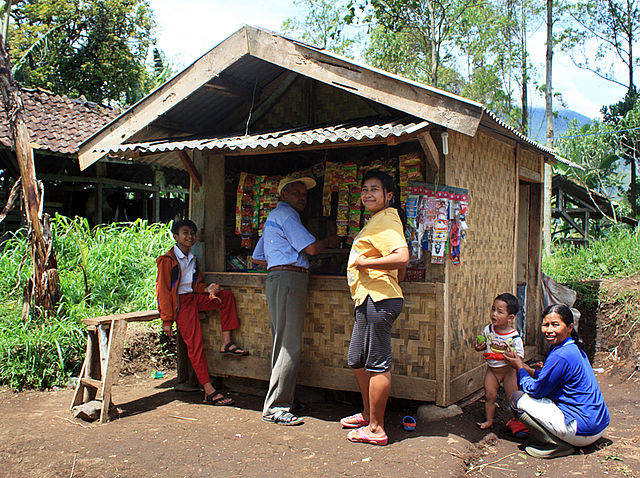A warung is a type of small family-owned business — small retail, eatery, or café — in Indonesia. A warung is an essential part of daily life in Indonesia. Over time, the term warung has shifted somewhat — especially among foreign visitors, expatriates, and people abroad — to refer more specifically to a modest Indonesian eatery or a place that sells Indonesian retail items. But for the majority of Indonesians, it still refers to a small, neighborhood convenience shop, often a front room or booth in a family's home.
A village warung in Garut, West Java, Indonesia.
A 19th-century image of warung during the colonial period
Warung rokok, cigarette-selling warung.
Warung kopi, small coffee shop selling coffee, tea, and snacks.
Tourism in Indonesia is an important component of the Indonesian economy as well as a significant source of its foreign exchange revenues. Indonesia was ranked at 20th in the world tourist Industry in 2017, also ranked as the ninth-fastest growing tourist sector in the world, the third-fastest growing in Asia and fastest-growing in Southeast Asia. In 2018, Denpasar, Jakarta and Batam are among of 10 cities in the world with fastest growth in tourism, 32.7, 29.2 and 23.3 percent respectively. The tourism sector ranked as the 4th largest among goods and services export sectors.
Indonesia possesses rich and colourful culture, such as Barong dance performance in Bali.
Jimbaran Beach, Bali
Borobudur is the single most visited tourist attraction in Indonesia.
Hotel Majapahit (est. 1910) in Surabaya experienced the tearing of the Dutch flag by youths Surabaya in 1946.








